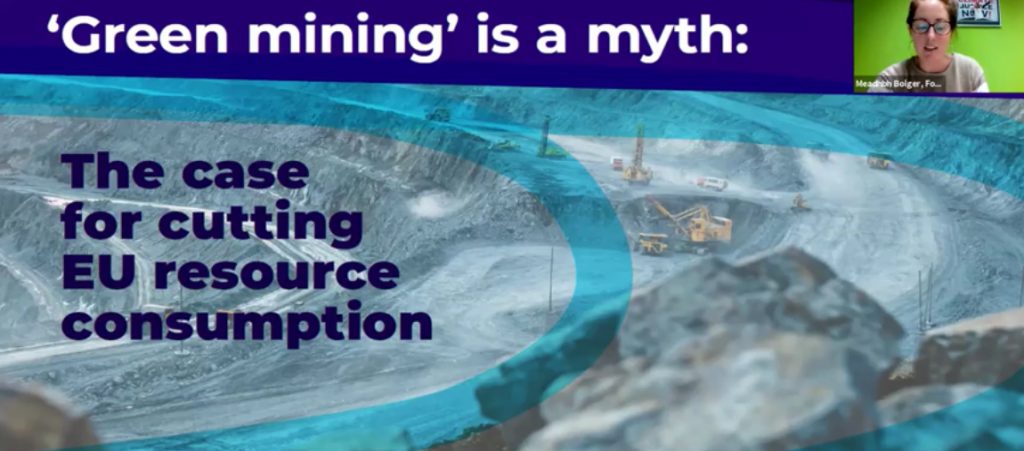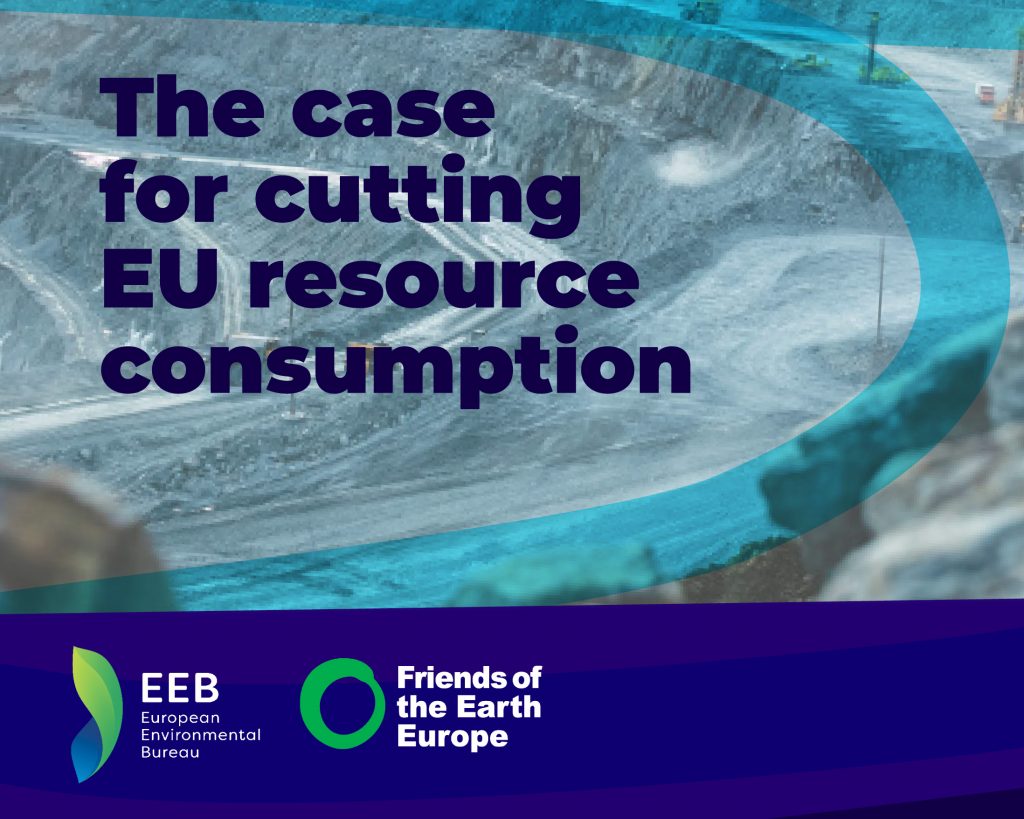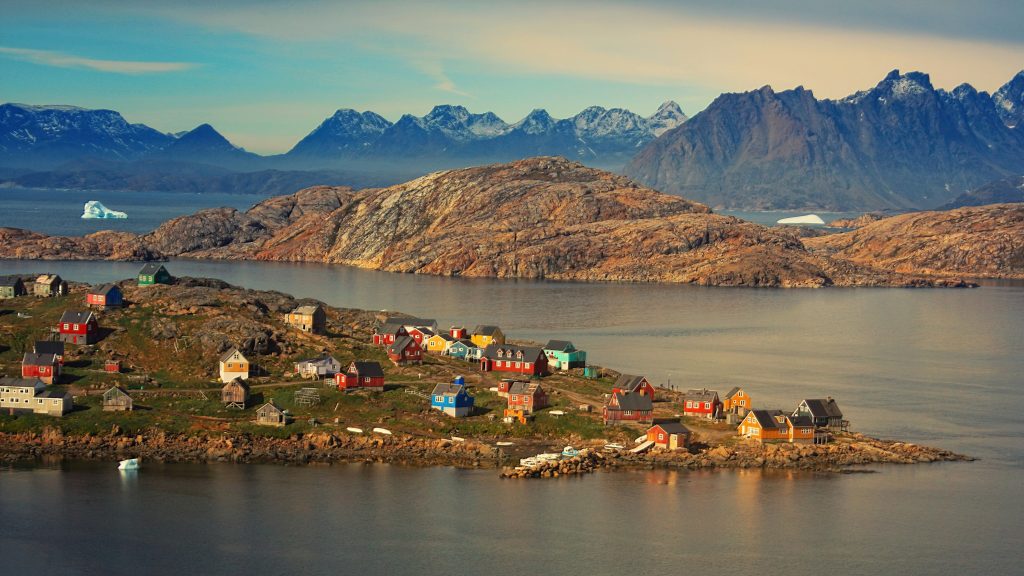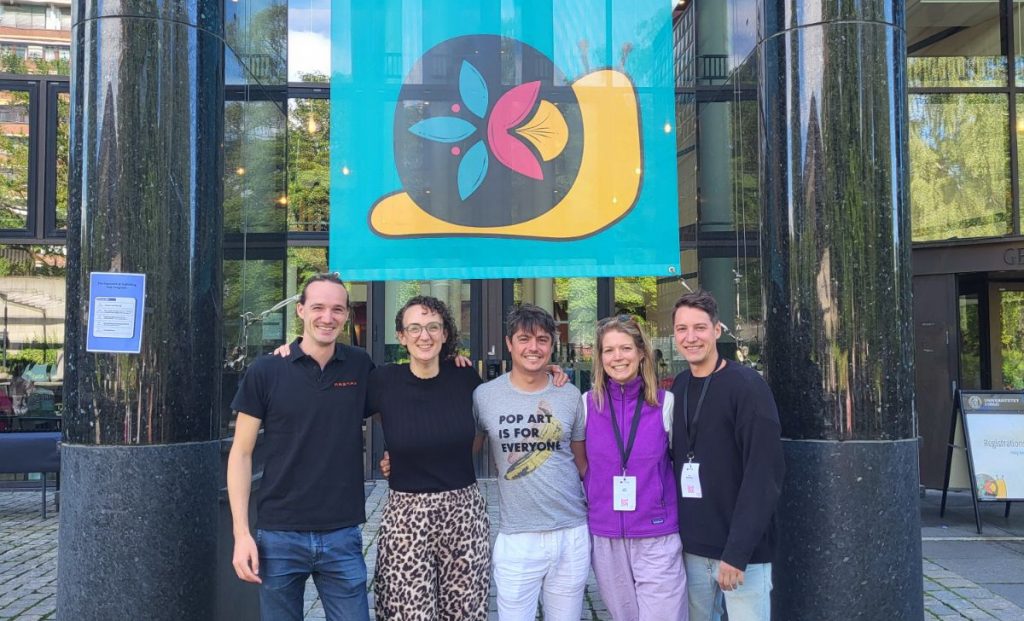We were delighted about the high levels of interest in our new report last week: ‘Green mining’ is a myth: the case for cutting EU resource consumption. More than 150 people attended the online launch event, with a broad spectrum of sectors and expertise present – from civil society and EU and national policy makers, to researchers and industry.
There were lively, passionate and thought-provoking discussions – both between the speakers and in the chat box. Resource consumption is a fundamental yet under-addressed question in discussions about the transition to sustainable economies. Our report goes some way to filling that gap.
Take a look back at the event recording here:
Metals and minerals in the political spotlight
The mining and use of metals and minerals have come under the political spotlight. Demand for many metals is predicted to rapidly increase under the EU’s twin green and digital transition plans.
Our report and event, done together with the European Environmental Bureau, aimed to answer questions like: What are the real impacts of increasing mining on people and the planet? How is the EU’s material overconsumption and growth-based economic model playing a role in this? Can we ensure a future with less mining?
Key findings and recommendations
The report shows that the EU is already extracting and consuming a dangerous proportion of the world’s resources, with serious consequences:
- The EU material footprint [1] is currently 14.5 tonnes per capita, about double what is considered a sustainable and just limit, and well over the global average;
- The EU alone already uses between 70% and 97% of the global environmentally ‘safe operating space’ related to resource extraction impacts. Any resource extraction beyond this ‘safe’ threshold threatens the stable functioning of the earth’s biophysical systems;
- More environmental defenders are killed for opposing mining than opposing any other industry. 50 of the 212 environmental defenders killed worldwide in 2019 were campaigning to stop mining projects.
Yet plans within the European Commission’s flagship European Green Deal are continuing on the path of ‘consumption as usual’, meaning enormous increases in mining for certain metals and minerals.
The green transition must be used as an opportunity to tackle the root causes of the broader climate and environmental crises – an economic system which drives overconsumption, harmful extraction, and social inequities in all sectors. As an urgent first step, the EU must set a material footprint reduction target of 65%.
The event was opened and expertly moderated by Tim Gore, the Head of the Low Carbon and Circular Economy Programme at the Institute for European Environmental Policy.
Jagoda Muni?, Friends of the Earth Europe director, started by setting the scene and was followed by a presentation of the report’s key findings by two of its authors Meadhbh Bolger, resource justice campaigner at Friends of the Earth Europe and Diego Marin, environmental justice policy officer, at the European Environmental Bureau.
Meadhbh Bolger, resource justice campaigner at Friends of the Earth Europe said:
The EU has a history of passing weak laws which fail again and again to reduce the amount of natural resources we consume, putting the remaining parts of the natural world and many communities under immense stress. The reason is simple: the laws are all predicated on economic growth, which is not compatible with a sustainable future.
The EU needs to wake up and set a headline target to cut material use by two-thirds so that the European Green Deal doesn’t become another footnote in the history of the destruction of the planet.”
We then heard remarks and inputs from our expert panel:
- Sara Matthieu, Greens Member of the European Parliament and city councillor in Ghent, Belgium gave an insight based on her role as rapporteur for part of the European Parliament’s opinion report on the European Commission’s Critical Raw Materials Action Plan. She stressed the importance of ‘quick wins’ such as banning mining in biodiversity-protected Natura2000 areas, and the need to look beyond the usual and implement policies like work time reduction, which can contribute towards reducing consumption.
- Peter Handley, Head of Energy-Intensive Industries and Raw Materials, DG GROW at the European Commission, said there needs to be more research on the levers of change in how we can systemically reduce consumption and that we need to ‘ramp up measures’ to reduce consumption. He said it was important to focus on reducing greenhouse gas emissions first and foremost and that we ‘get mining right in Europe’.
- Catarina Alves Scarrott, from Associação Unidos em Defesa de Covas do Barroso, one of the many grassroots citizen movements against proposed lithium mines in Northern Portugal, gave a powerful and passionate account of the reality mining-affected communities are facing on the ground. They are facing an “extensive and aggressive prospection campaign” by mining companies, being spurred on by “misguided and misinformed politicians and permissive licensing”, she said. This has led to threats from mining companies that if the local community don’t sell their lands now, they will be “left with nothing”.
We then opened into a panel debate between the five panellists. Discussions centred around the ‘Right to Say No’ to mining. How can this be implemented in the EU? What similar initiatives exist in other countries or regions? It is clear there needs to be more action by the EU on this and to give communities more rights and make corporations more accountable. The upcoming mandatory EU due diligence legislation is an opportunity to improve this. There were also discussions around resource use reduction and the setting of a material footprint reduction target. The Commission needs to use its influence more in this area and do the research and target-setting needed.
Closing remarks were made by Jeremy Wates, Secretary General of the European Environmental Bureau. He reiterated the need to set resource use reduction targets that will shape, inform and give clear pointers to align policies to actually deliver resource use reduction. He brought up that in the chat box it had been mentioned it is consumers that have the responsibility to change, but that this view is not taking into account that consumers act within the current framework, which actually gives them limited influence.
What next?
Our report and the event kicked off a much-needed discussion and is to be continued. The interest and depth of debate signals how vital it is to keep talking – and acting. There is an urgent need for systemic change in how we approach the crises we face. We need to go beyond the growth-based economy, address resource overconsumption and tackle justice issues around the extraction of resources.
A big thank you to all the report authors, contributors, design and editing team, communications team and to all our event speakers, moderator and background support team.
[1] Total consumption of fossil fuels, biomass, metals and non-metallic minerals, including embodied in imports.







